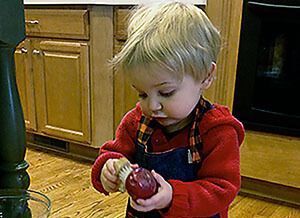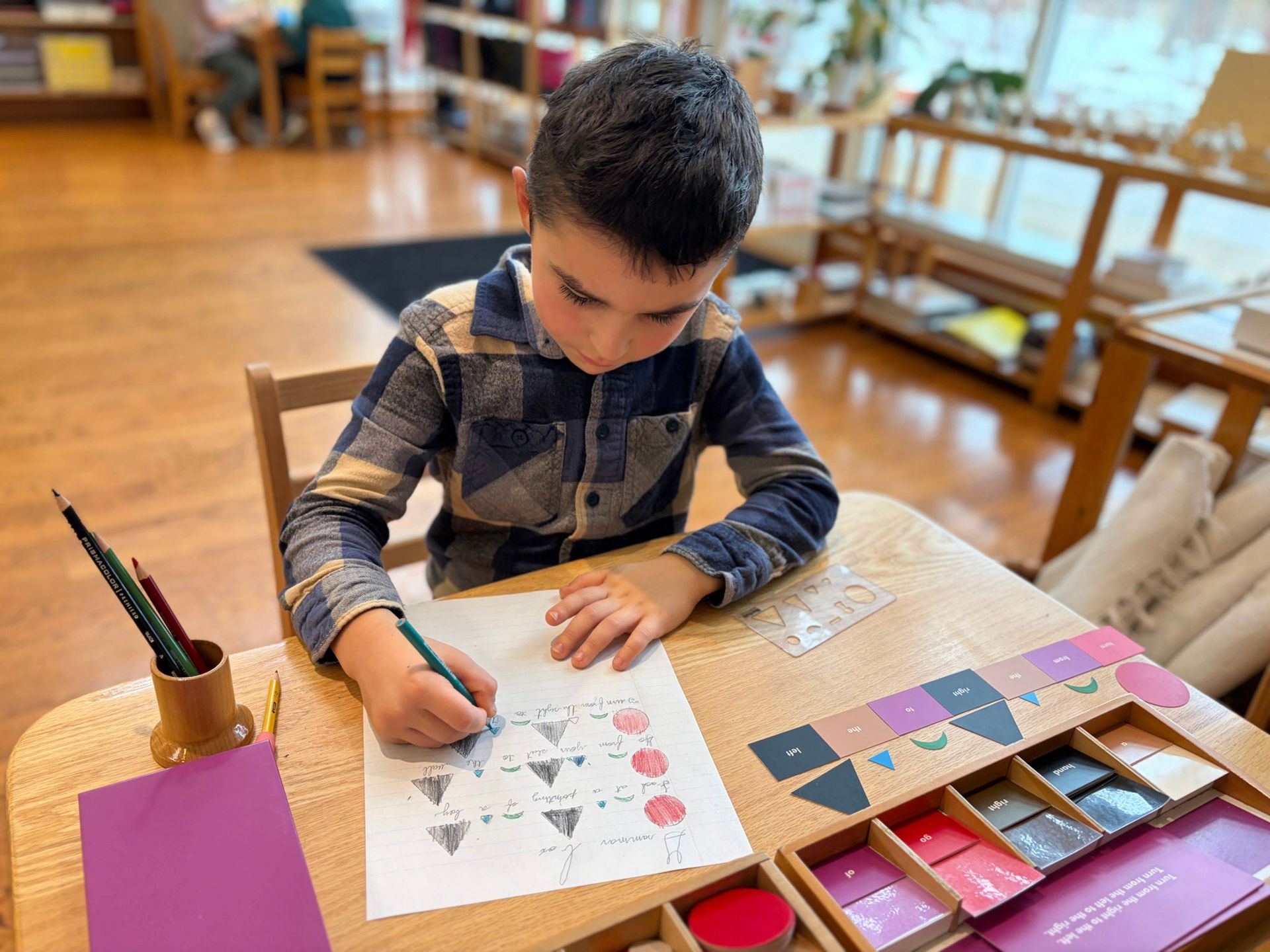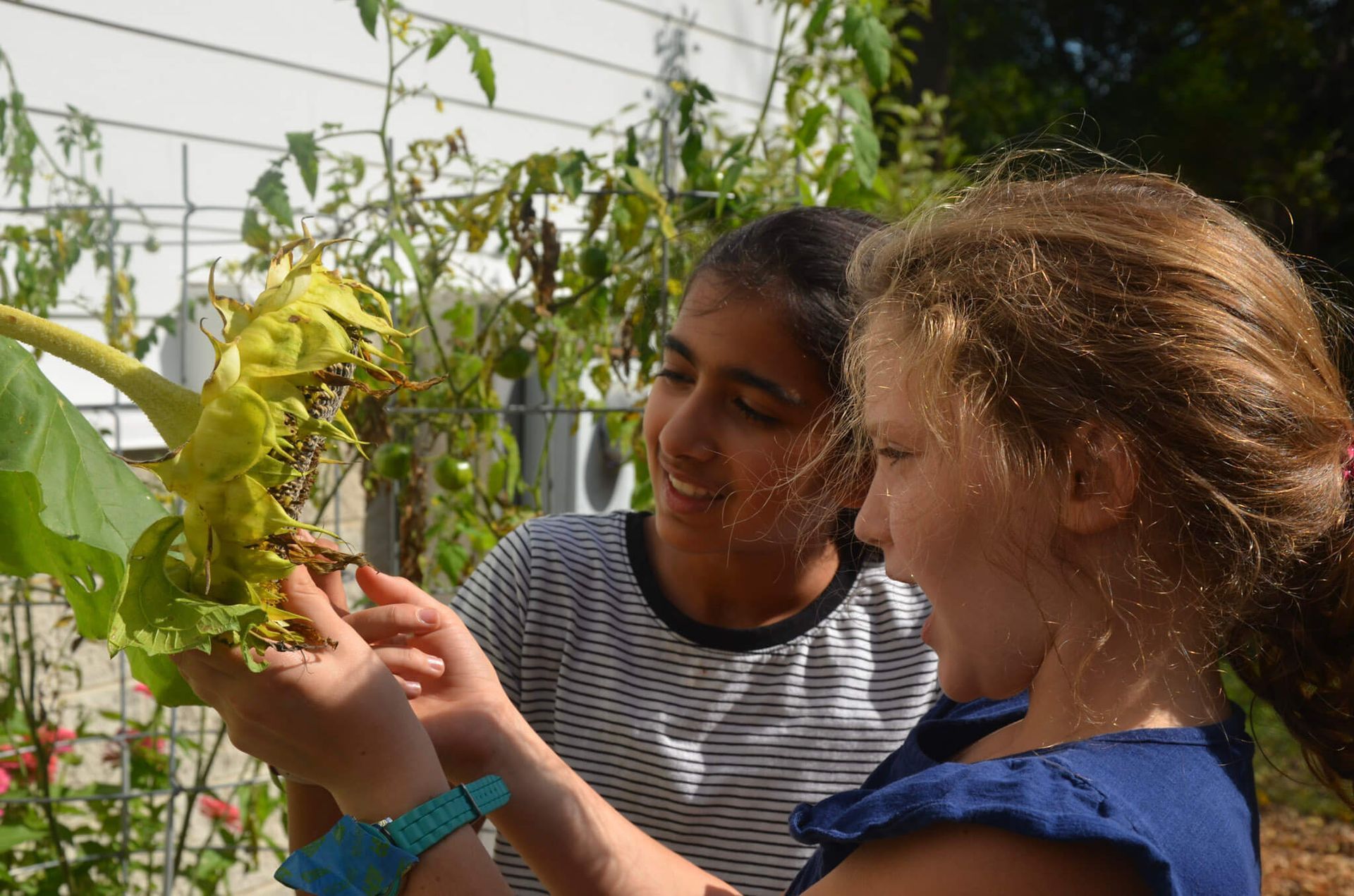
Independence in the First Plane of Development
In this article we are going to talk about the child’s plea for help in achieving independence in the First Plane, the years from birth to six. This of course means physical independence: independence in the here and now, the present world of time and space, in the world that we see and touch. As always in Montessori we want to keep in mind where the child is going next so that we are helping the child build a strong foundation for the succeeding plane. In this case: childhood’s “age of reason” and the Second Plane, the years of 6 through 12. The child now asks of us “help me to think my own thoughts.”
Recognizing this succeeding need helps us to understand that the child’s ultimate goal in independence is actually a spiritual one. It is the human spirit within the child that asks of us “help me to help myself” from birth to six and “help me to think my own thoughts” from six to twelve.” This ultimate need of the child reminds us that we want always to see the child before us, to look deeply into his or her eyes, human spirit to human spirit, “subject to subject,” recognizing and respecting that this is a unique human being never created before and never to be created again in all of human history – past, present or future. This incredible mystery, and the awe it calls forth, is the basis of our loving interactions with our child. It is in these moments of awe that we find the answers for how to help our children to eventual independence from us, both in the physical world and in the abstract world of ideas, reason and imagination. These answers are far more likely to be based in our own intuitive observations of our children than in the many “how to” books of our current day, helpful as some of them may be.
I was fortunate to have just such an opportunity for intuitive observation of children in the early 1960’s. It was this experience that led to my initial attraction to Montessori’s ideas of education and an understanding of the importance of independence in early childhood. I was a young mother of four children under the age of six– and in my twenties in the late 1950’s – when suddenly I found myself totally overwhelmed by the very life I had dreamed of having since childhood. How could this have happened? I was in complete shock. I knew how hard my parents had tried to be the best of parents, and I had done everything that was asked of me from good grades in school to social expectations. What could have gone wrong? Hence, began a long journey of self-reflection and understanding.
The opportunity to see Montessori’s approach to independence for children in action was a key part of that learning process. I was able to witness for a full school year the opening of a Montessori classroom for three to five year olds taught by an experienced teacher who happened to be in France just before the outbreak of World War II and had attended lectures there by Dr. Montessori herself. Miraculously, I saw these little children choosing their own work, putting it back, calmly and peacefully going about their uninterrupted morning with minimal adult direction.
Subsequently, I learned that visitors from all over the world had come to Rome from 1907 to 1913 to see Dr. Montessori’s original classes of young children, first with children of poor and illiterate parents but almost immediately with children from wealthy homes as well. These visitors reported their astonishment as they watched these children quietly choosing their own work, being kind and helpful to each other, and above all, calm and at peace whether: gardening, preparing hot lunch, serving each other with tureens of soup, and even learning to combine sounds and letters, numbers and one to one counting, thus becoming literate and numerate all by age six or seven.
Even more amazing, in these early classes in Rome--as in the classes I eventually observed in Cincinnati, Ohio in the early 1960’s--the children’s willingness to struggle, their self-motivation and energy when dealing with mistakes and accidents, their matter of fact attitude about them, their lack of dismay or discouragement, universally impressed those who came to see them. By 1913 Montessori had published her first book on what came to be called the Montessori Method and established her first International Training Course in Rome with participants coming from over thirty countries.
Visitors to our classes at Forest Bluff School today see the same phenomena as in those early days and ask the same universal question of those first visitors: “But how do the children know what to do?” We have come full circle to the young child’s plea, “Help me to help myself ” and the older child’s plea “Help me to think for myself.” The goal of our Parent Child and Continuing Education Series for parents is, in part, to help our parents at home to meet these needs of their children for eventual independent action and independent thought in their lives as adults.


